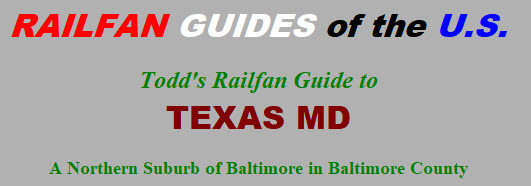
In General
Sights
Station by Station
Fire and Police
Floobydust
RAILFAN GUIDES HOME
RAILROAD SIGNALS HOME
Guide Home Maps Hiways Hotels Intro Railroad Sights Links Photos Busses Bio's
Location / Name:
the Baltimore & Susquehanna Marble Ties The two aerial shots below show where the
stones were uncovered and could easily be seen during 2005. The full size
picture is taken from Industry Lane looking south. In the picture, you can
also see the back of a grade crossing signal that is no longer around.
Light Rail - Station by Station
Texas MD
What's Here:
Former R-O-W of the Baltimore & Susquehanna RR
(the 2nd railroad in Baltimore), and later the Northern Central, Pennsy, PC,
Conrail, and NS
B&S marble stringers (ties)
Fire stations - BaltCo
#17
Plenty of food, shopping,
and gas, Walmart, and the usual other suspects
The "Texas Quarry"
Data:
GPS Coordinates:
Hunt Valley station:
39.496293, -76.654531
Warren Rd station: 39.496288, -76.654164
ZIP/Texas: 21093
Access by train/transit:
No Amtrak or MARC service
Nearby Light Rail Stops:
Warren Road
Gilroy Rd
McCormick Rd
Pepper Rd
Hunt Valley
Bus - Local - #93 Route
(as of mids 2017, the MTA re-did all of their route designations, messin
everyone up! :-)
My pages for the
nearby communities:
Towson
Ruxton and Riderwood
Lutherville
Timonium
Hereford and Monkton
Brooklandville
The Green Spring branch
And the "old" Map
1 page
The Scoop:
The map below shows the north suburban side of Baltimore... Towson, Lutherville, Timonium, Cockeysville, and Hunt Valley. It is a very busy, I am in the process of
splitting it up into easier to manage sections, this is for the small community known as Texas, sandwiched between Cockeysville and Timonium.
Not really a whole lot here by itself, but in combination with all of the towns along the light rail line, there is enough to keep you busy for a while if you are
into transit and items of historical interest. If you're not into those things, other parts of Baltimore will keep you busy.
The grade crossing going in the old Harry T. Campbell's Quarry has been closed since the light rail opened in 1990.
The bar that used to sit by the grade crossing, with the dirt floor, is also long gone.
Security: This part of Baltimore County is comprised of middle class neighborhoods, so there is no problem railfanning alone. The county police
will generally not bother you. The MTA 95's (their police) may come around if you venture too close to the tracks in places not the norm and the operators
report your presence.
The second railroad of Baltimore, the Baltimore and Susquehanna, came through here in 1831-32 heading to York and Harrisburg.
A fairly complete history is on the Ruxton and Riderwood page. The railroad was re-organized as
the Northern Central Rwy after a really bad accident in Ruxton/Riderwood killed 35 people, and the B&S was prompted to
reorganize in order to stave off bankruptcy. The B&S also built the Green Spring Branch, which
the Western Maryland used in the beginning before they had their own route out of the city. They built this route as an
alternate way out of Baltimore when the state of Pennsylvania denied the Northern Central access to entering York County. The R-O-W was double tracked and
signaled by WW1. Local passenger service, known as the Parkton Local, was discontinued in 1959. Soon after, the line reverted to a single track with
passing sidings. The last passenger train came thru in 1971 with the start of Amtrak, and the last freight train came thru in June of 1972 before hurricane
Agnes did its damage to the line and the Penn Central could not afford to rebuild the line (it was easier to have freights go up to Perryville and use that line
to get to Harrisburg than deal with the grades and curves of the Northern Central anyways - most of the freights using the line in the latter years were SB because
of the grades).
The northern part of the light rail system runs right up the middle of the map, which was the original right-of-way of the Baltimore & Susquehanna/Northern Central.
The original section which opened in 1990 and went to Timonium. The extension opened to Hunt Valley in September of 1997. Any part of it that wasn't, was double
tracked in 2005, and the old marble ties (stringers) were visible along the R-O-W. Above Cockeysville, the R-O-W is now the NC hikey-bikey Trail, which is very popular
with those types. The R-O-W leaves the ex-Northern Central mainline on the north side of Warren Rd., and other than the stub that is still there, not much
remains visible of the mainline. NS trains stopped running when the light rail closed the track for the double tracking project at the beginning of 2005.
They applied for abandonment shortly thereafter.
There are no light rail stops in Texas. The closest ones are Warren Rd to the north, and Timonium to the south.
There is plenty of food and gas along the York Rd corridor (too much, actually :-), as well as hotels.
Websites and other additional information sources of interest for the area:
https://friendsoftexasmaryland.org/2013/09/29/have-you-ever-heard-of-a-place-called-texas-maryland/#comment-1172
Great page! - Have you ever heard of Texas MD?
http://en.wikipedia.org/wiki/Baltimore_Light_Rail
http://www.mdoe.org/north_central_rr.html
http://en.wikipedia.org/wiki/Northern_Central_Railway
http://wikimapia.org/7137695/Northern-Central-Railroad-Pennsylvania-Railroad-Abandoned
http://www.rrpicturearchives.net/archiveThumbs.aspx?id=1403&Page=2 surviving railroad stations in Maryland
http://www.rrshs.org/Maryland/baltimoremd.htm field check of many station sites in Baltimore County
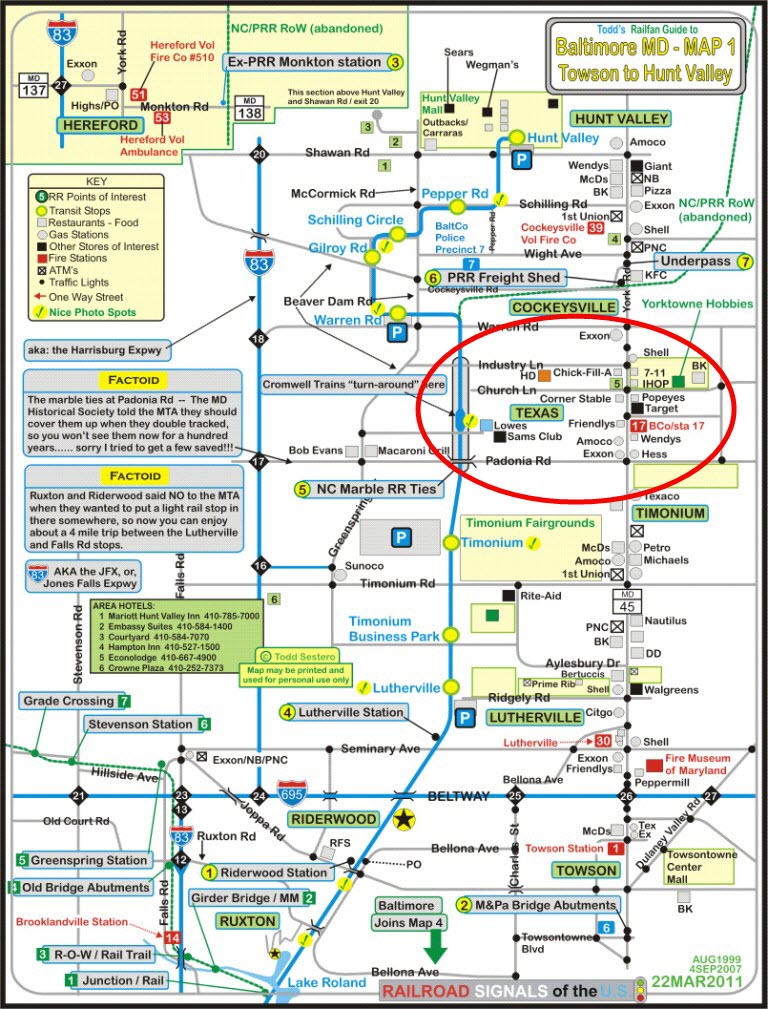
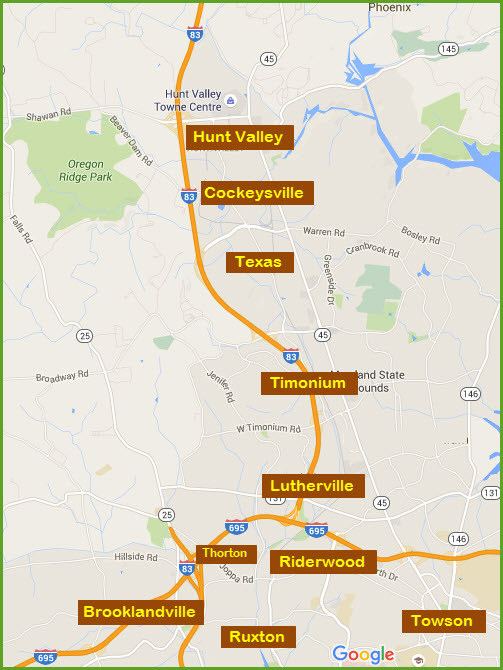
Portions of older and newer versions of the MTA's light rail map:
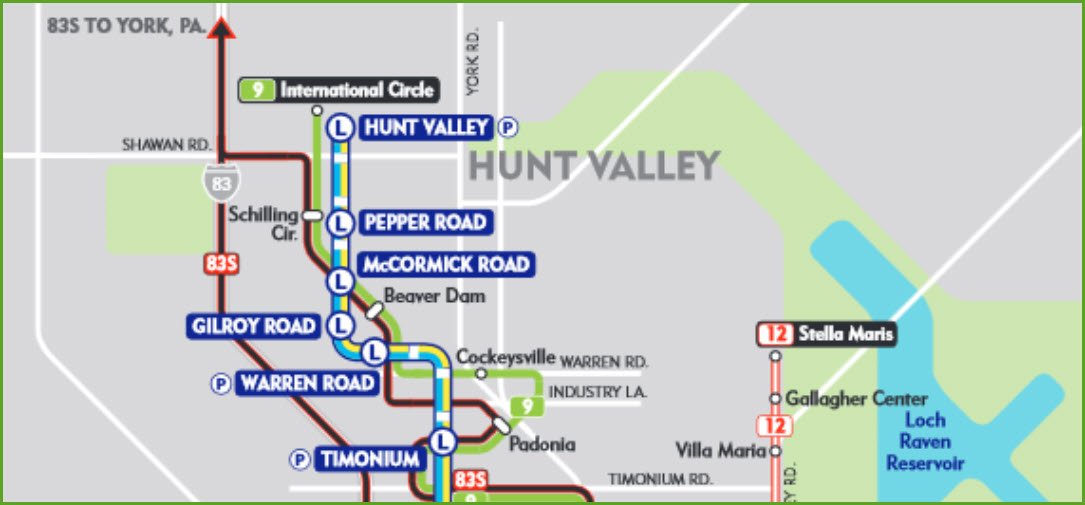
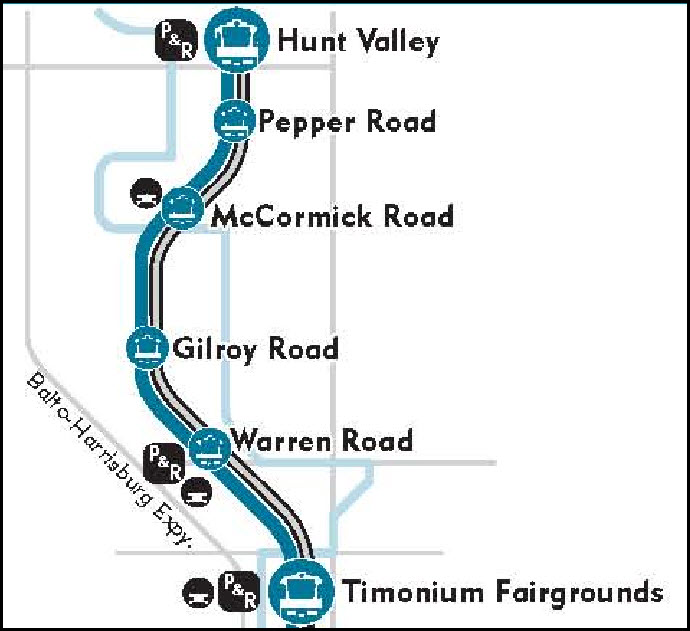
These fine examples of marble railroad ties date back to when
the Baltimore & Susquehanna (Northern Central) was heading north out of Baltimore in the 1834 time frame.
When the MTA Light Rail was double tracking the northern section in 2005, they
"uncovered" many of the ones still left in the old right-of-way. There
were two sections that we saw, one was under Padonia Road going several hundred
feet to the south, the other section was at Industry Lane. I tried like a
bandit to get some of them saved, but neither the MTA nor the Maryland
Historical Trust wanted to do so, stating that they should be preserved for the
future when "we" will know more about discovering their secrets. The
letter I received also asked me if I knew anything about extracting historical
artifacts out of the ground without damaging them, but a couple of days after I
received that letter, people doing the R-O-W work came along and scraped the
top of several dozen of them with a bulldozer while clearing the way for the new track - so much
for the state being good guardians of our past. So, they all got buried
and none of us will ever see them again :-( 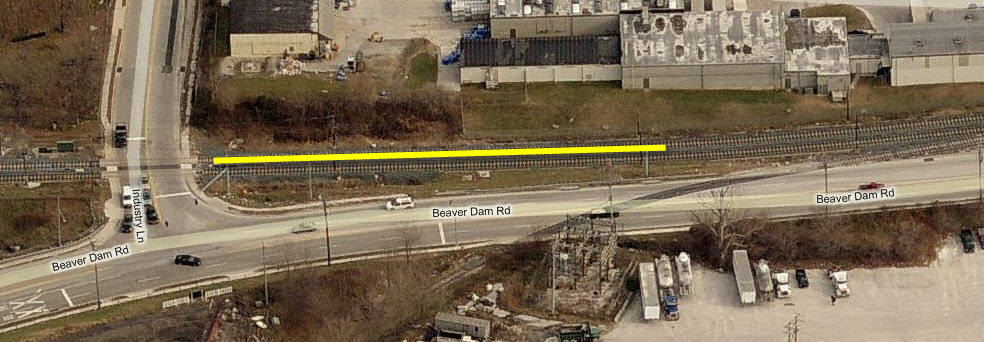
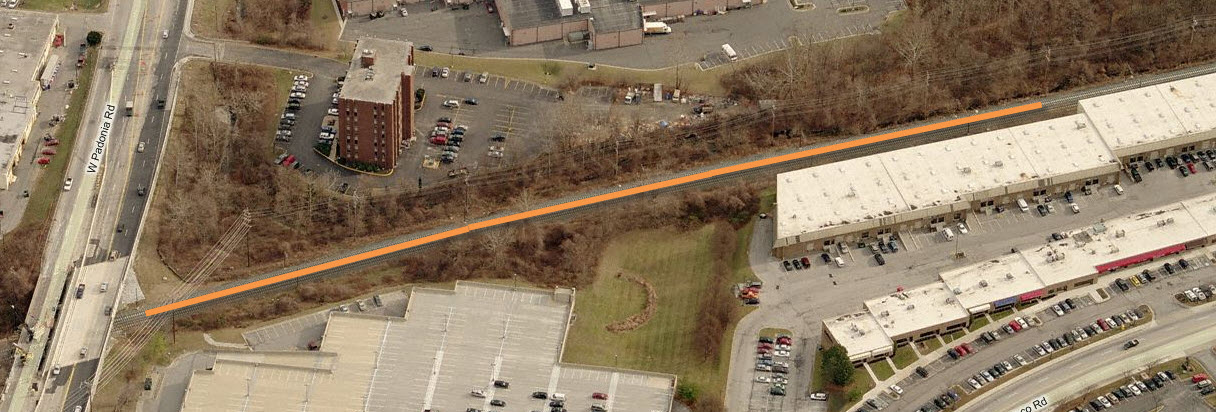
the "Texas Turn Around"
The pocket track here in Texas is one of only two on the Baltimore system. The
pocket track serves as a turn-around point for the Cromwell trains, for they do
not go all the way up to Hunt Valley.
My guess as to why they use the middle track as the turn-around track, is
because there is only one crossover for the northbound side to go anywhere.
"They" unfortunately didn't place the switch for the third outside track after
that crossover, it is "before " it. The picture below illustrates this - the
switches that are aligned for a crossover move are for the next NB train to move
into the pocket track. If this crossover had been placed further away, on
the other side of the distant switch, then they could have used the outside
track as the turn-around track, and let the SB trains run straight through.....
just a thought..... less wear and tear over time.
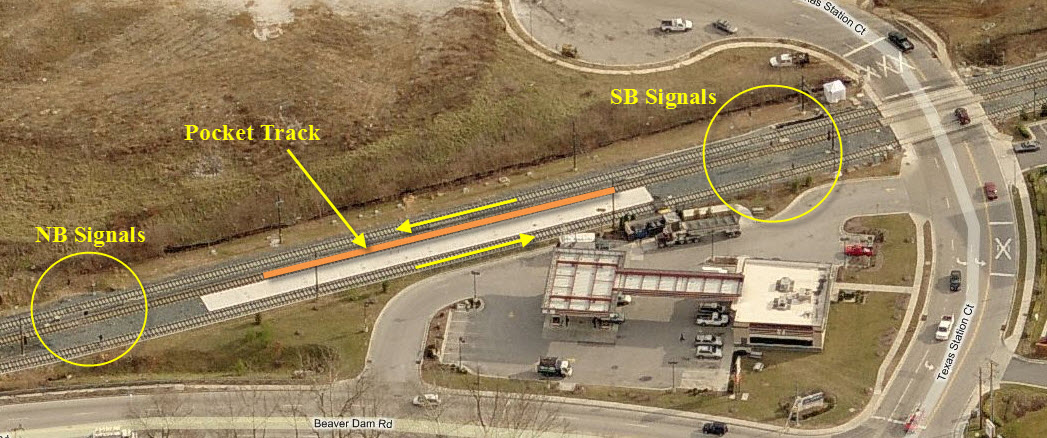
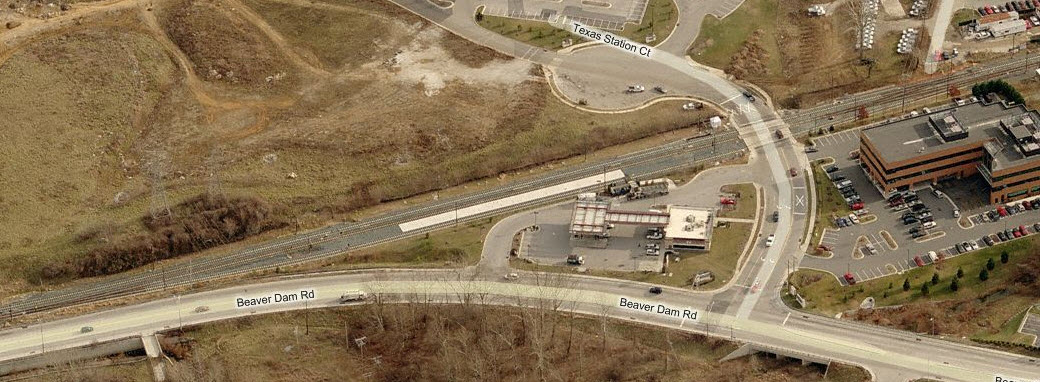
NB trains passing the pocket track.
NB going into the pocket track.
In the pocket track.
SB trains passing the pocket track.
Picture from the adjacent medical building and my doctors
office, they think I'm nuts when I show up for an exam with my camera :-)
Ductwork used for running the cables in, instead of
running them overhead and/or on poles.
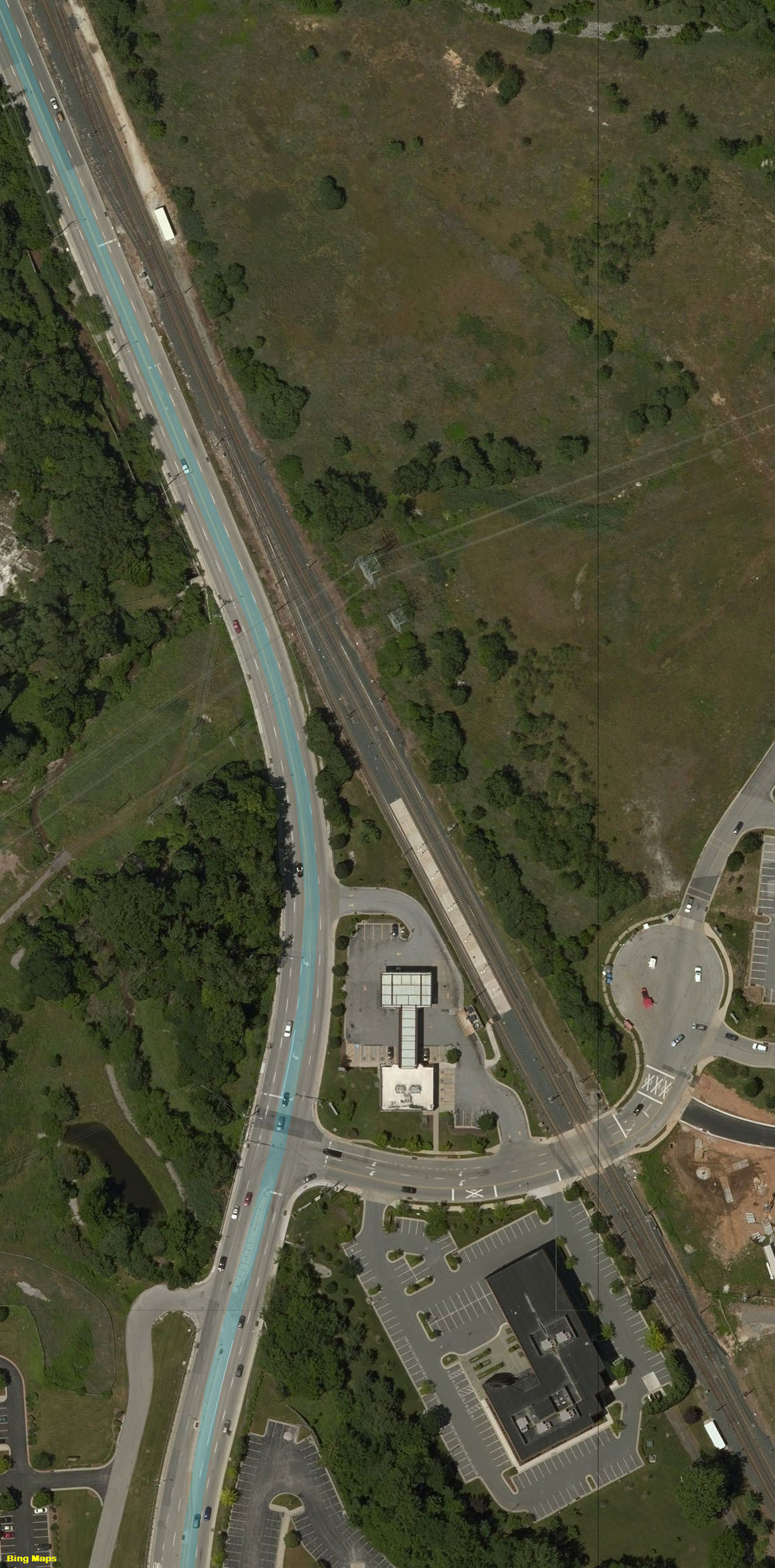
There is no police precinct in Texas, and one fire station, #17, a paid county station.
![]() Baltimore
County Fire Station #17 - Texas
Baltimore
County Fire Station #17 - Texas
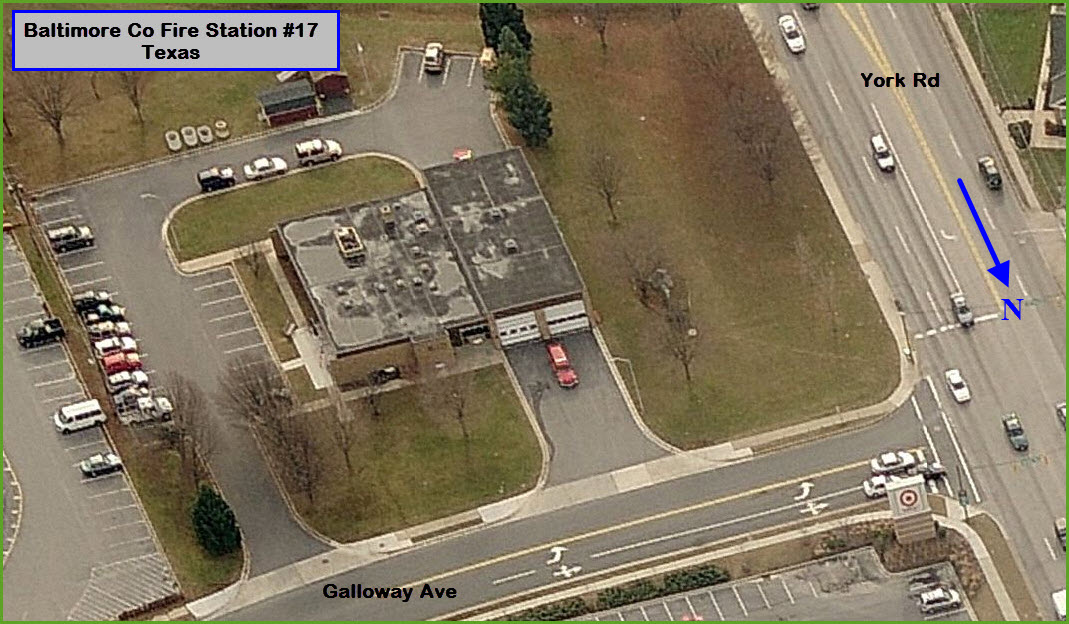
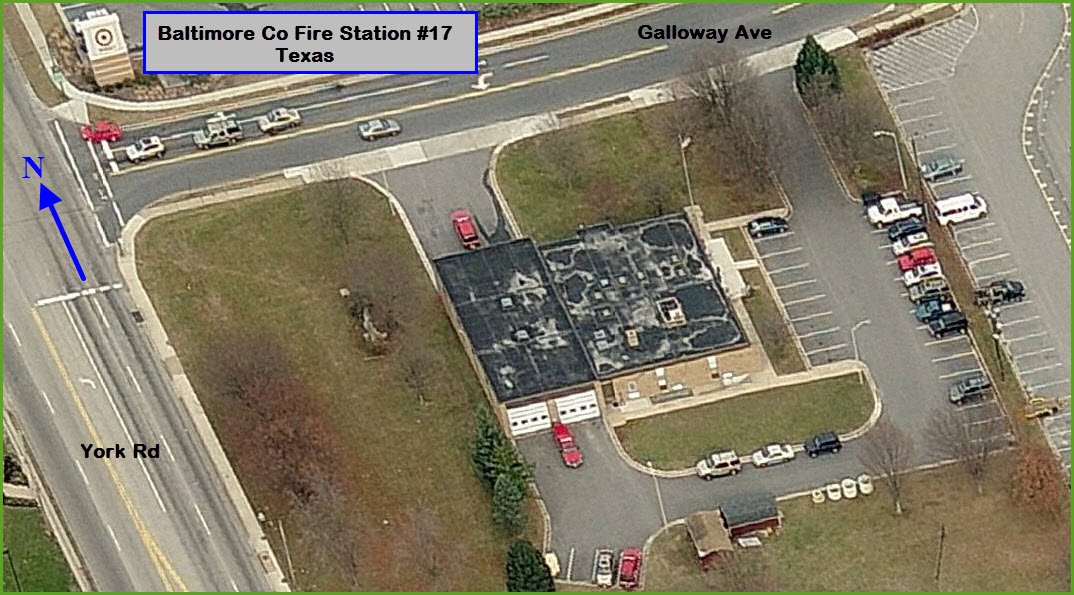
Battalion Chief 11 and 1 sitting outside the station.
Engine #17 caught on NB 83, and then at the station about 30
minutes later going down York Rd.
New 05/08/2016,
08/02/2016
Tower 17 at Sam's Club on a rainy night in Texas (MD) on 11/30/2015.
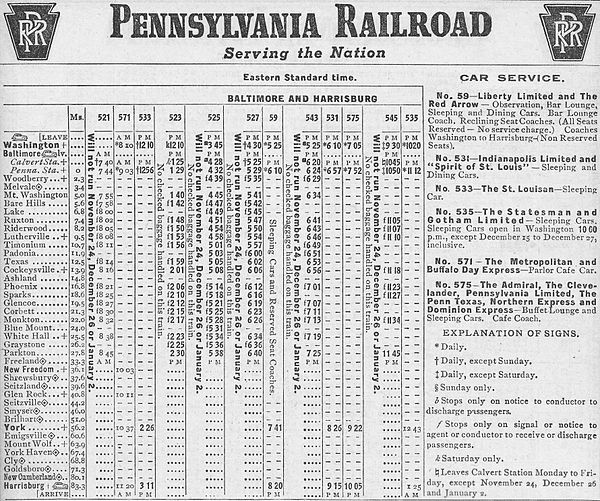
The Texas Quarry
This quarry goes back to the 1700's. Marble for the Baltimore & Susquehanna RR stringers (ties) came from here and was one
of it's biggest and earliest customers. Marble for the Washington Monument in Washington DC came from here, and at one point, when they needed replacement
marble while rebuilding the monument, came back for matching stone. Today,
the quarry doesn't supply much marble. It does provide a big source of
stone for local projects, and reportedly produces calcium carbonate which is the
white dust on gum. Some of the tunnels extend out from the center of the
quarry some 2 miles. Back in the mid 70's I had the opportunity to go down
into the hole as part of family day when my (then) father-in-law worked there as
a dozer operator.
Don't waste your time trying to see into the hole, it's
impossible as a non-employee or unless you're a dump truck driver coming in for
a load.
In the aerial shots below, the yellow arrows are
pointing to the right-of-way. Also pointed out is the Warren Rd station
and the pocket track (PT). One the smaller of the two, you can also see
where MB Kleins is located, one of the
few remaining hobby shops in the Baltimore area, and has a large web presence.
Also FYI, the orange X's are part of the Texas "Landfill", which today is a
transfer station. But when I started driving in 69, and up into the late
80's, it was a bonafide landfill. Maybe someday it will be an
archeological sight because of all of the crap that is buried there. Much
of my old stuff is sitting somewhere in there :-)
At least in my lifetime in Baltimore (> 1966), the quarry was owned by Harry T.
Campbells. It would be interesting to get a whole lineage of the quarry,
cause since Campbells owned it, it has probably had 5 or 6 other owners.
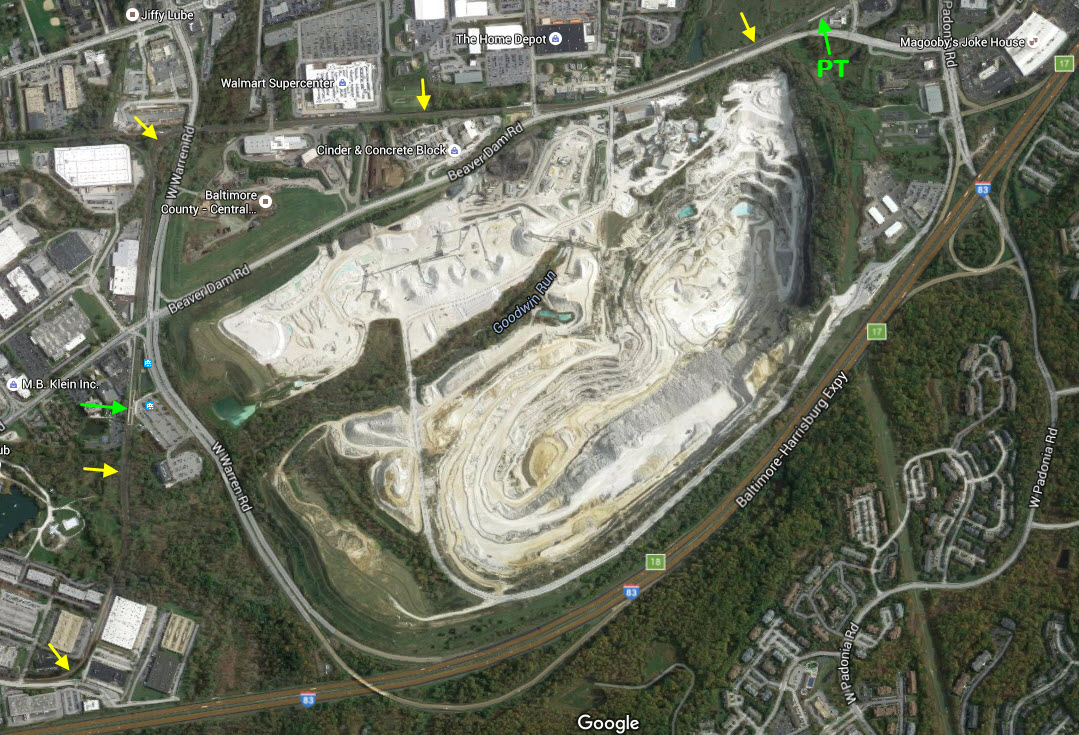
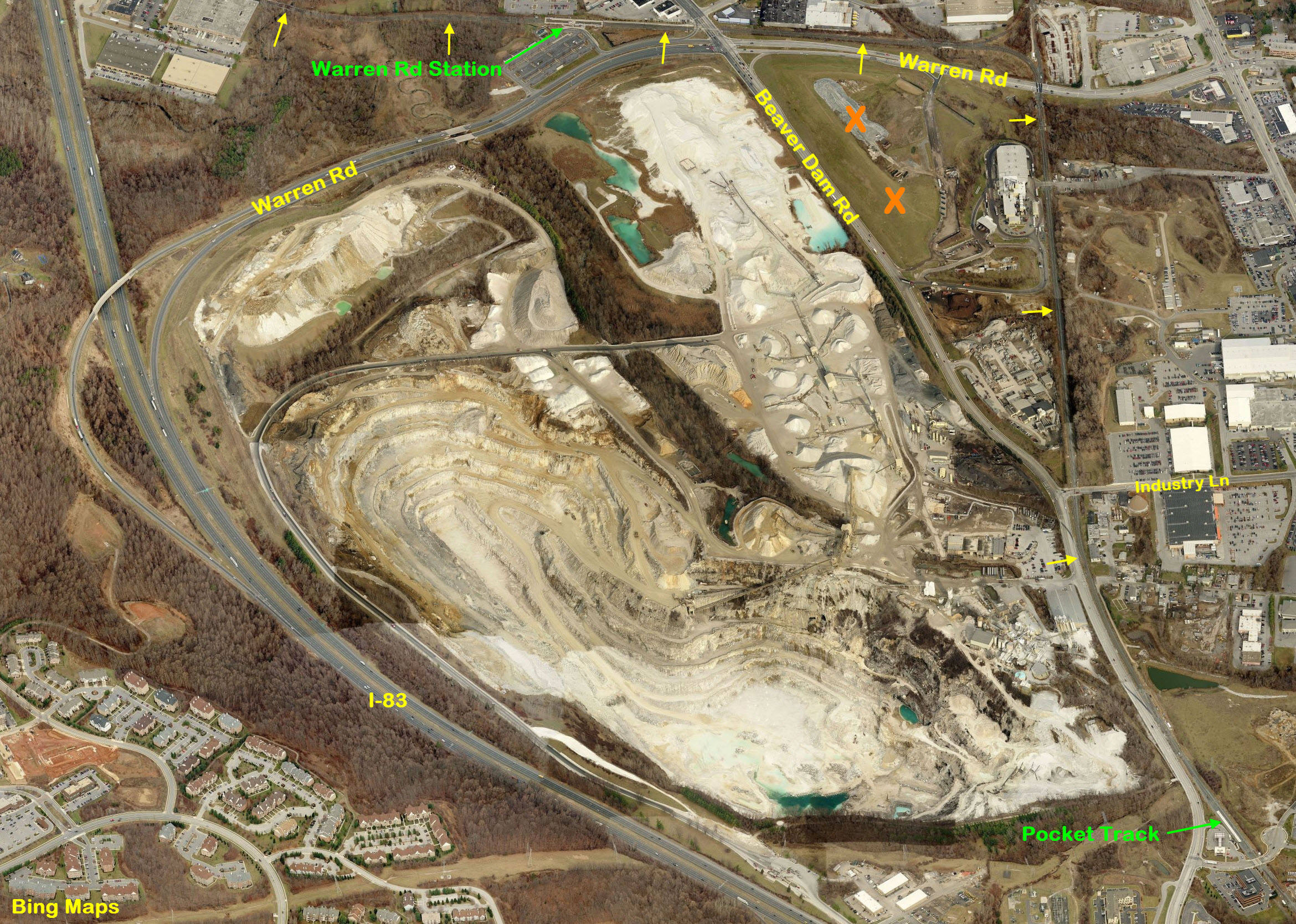

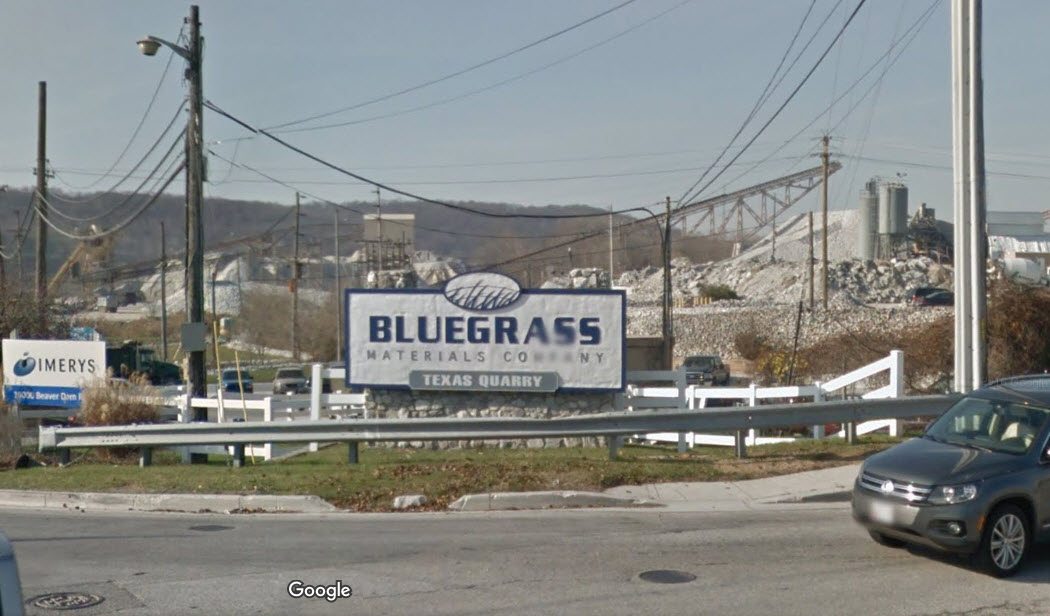 The current
owners.....
The current
owners.....
Last Modified:
10/18/2018